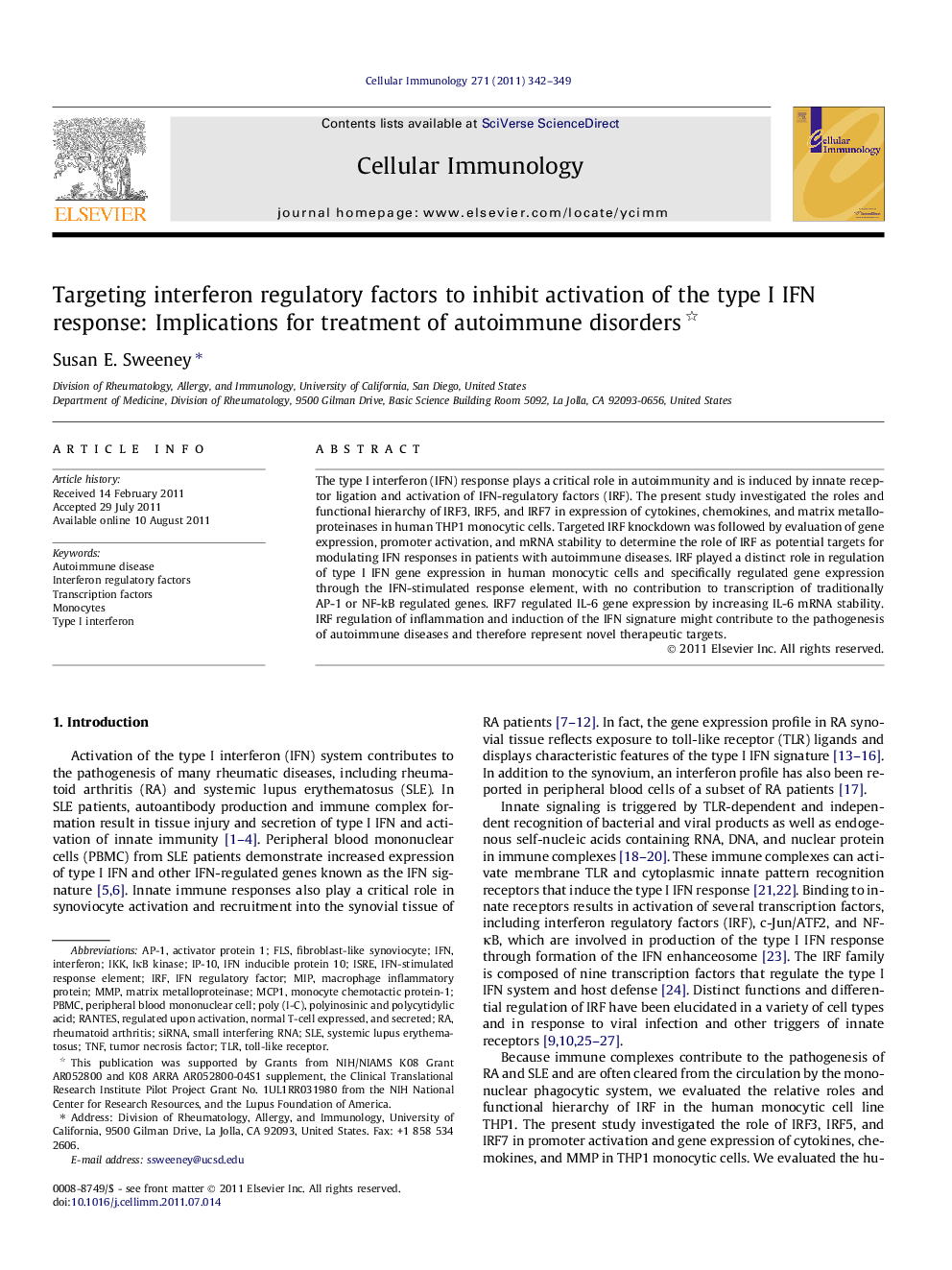| Article ID | Journal | Published Year | Pages | File Type |
|---|---|---|---|---|
| 2167289 | Cellular Immunology | 2011 | 8 Pages |
The type I interferon (IFN) response plays a critical role in autoimmunity and is induced by innate receptor ligation and activation of IFN-regulatory factors (IRF). The present study investigated the roles and functional hierarchy of IRF3, IRF5, and IRF7 in expression of cytokines, chemokines, and matrix metalloproteinases in human THP1 monocytic cells. Targeted IRF knockdown was followed by evaluation of gene expression, promoter activation, and mRNA stability to determine the role of IRF as potential targets for modulating IFN responses in patients with autoimmune diseases. IRF played a distinct role in regulation of type I IFN gene expression in human monocytic cells and specifically regulated gene expression through the IFN-stimulated response element, with no contribution to transcription of traditionally AP-1 or NF-kB regulated genes. IRF7 regulated IL-6 gene expression by increasing IL-6 mRNA stability. IRF regulation of inflammation and induction of the IFN signature might contribute to the pathogenesis of autoimmune diseases and therefore represent novel therapeutic targets.
► Interferon regulatory factors activate the type I IFN response in THP1 monocytic cells. ► IRF3 was central to IFN-regulated gene expression; however, IRF7 regulated IL-6. ► IRF represent therapeutic targets for RA and SLE.
